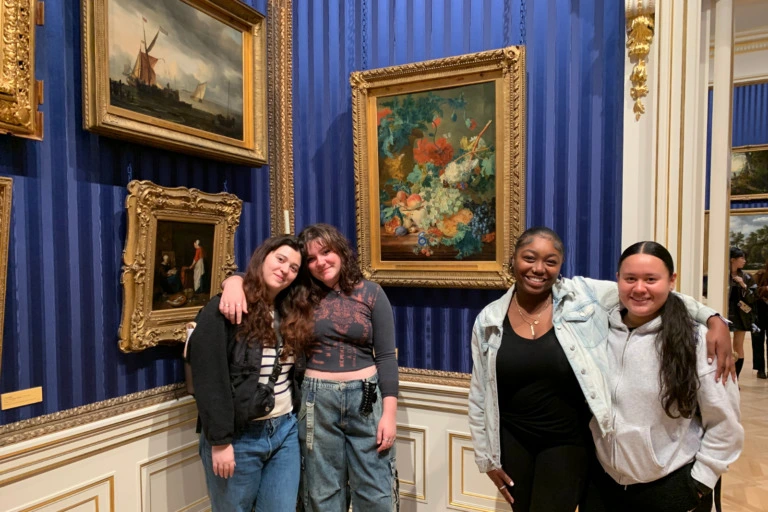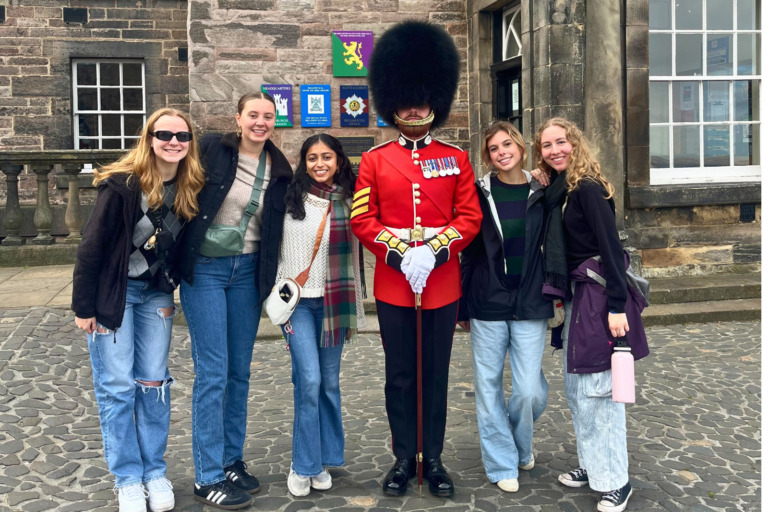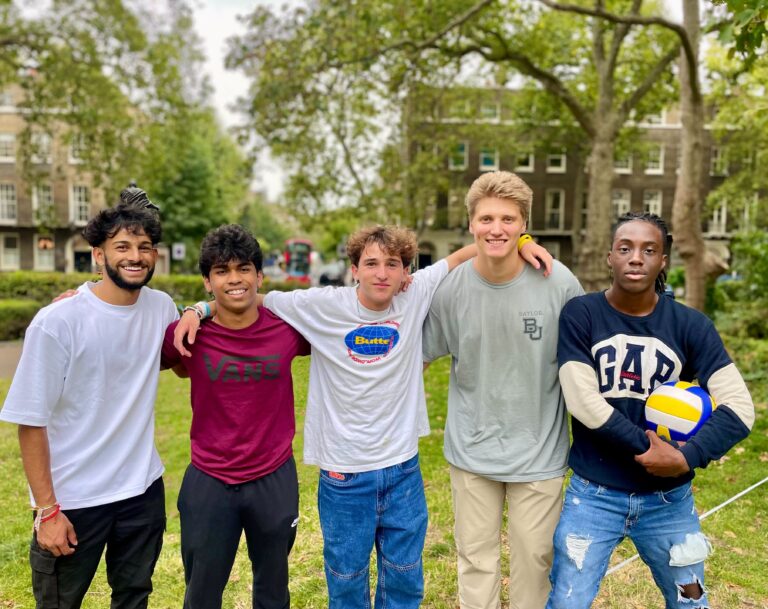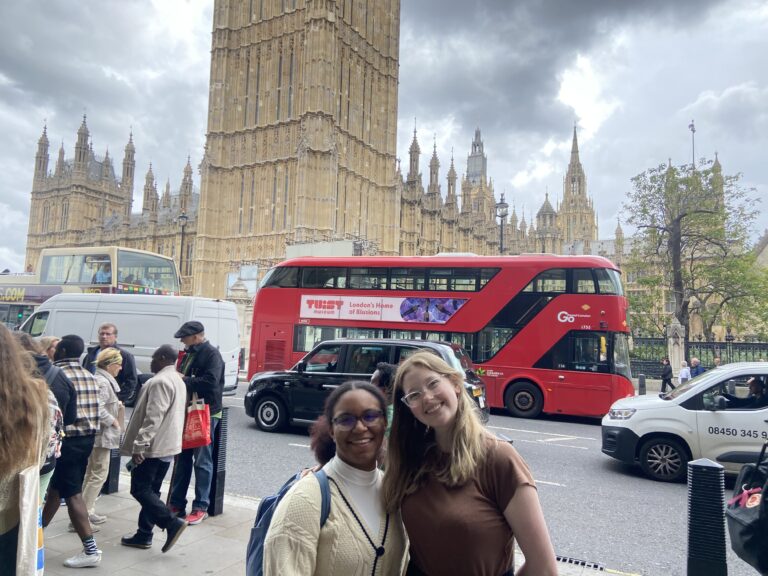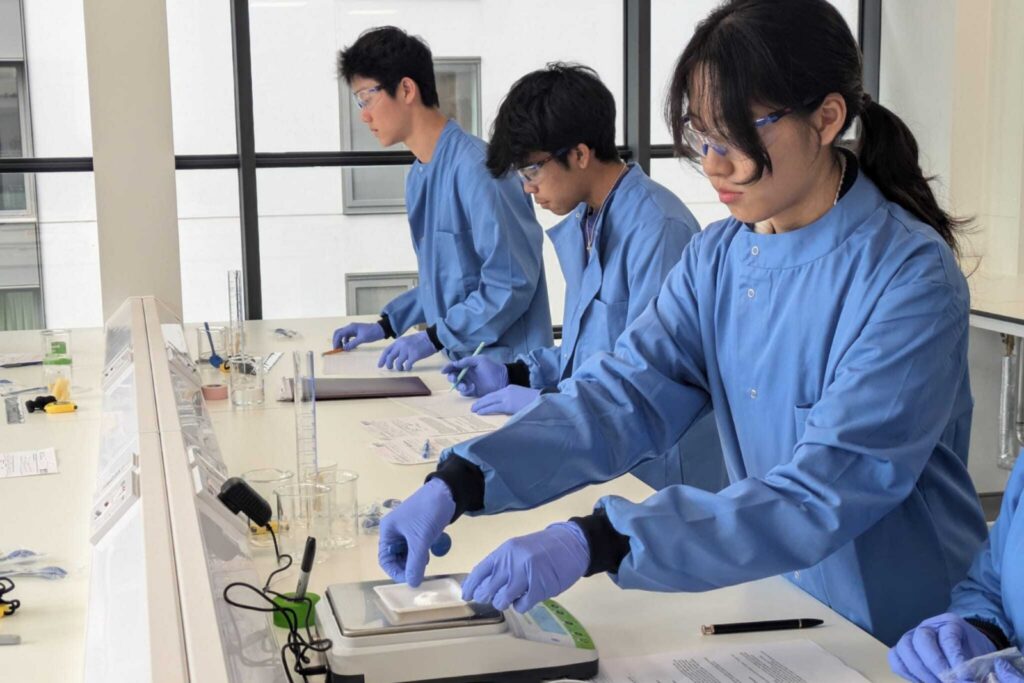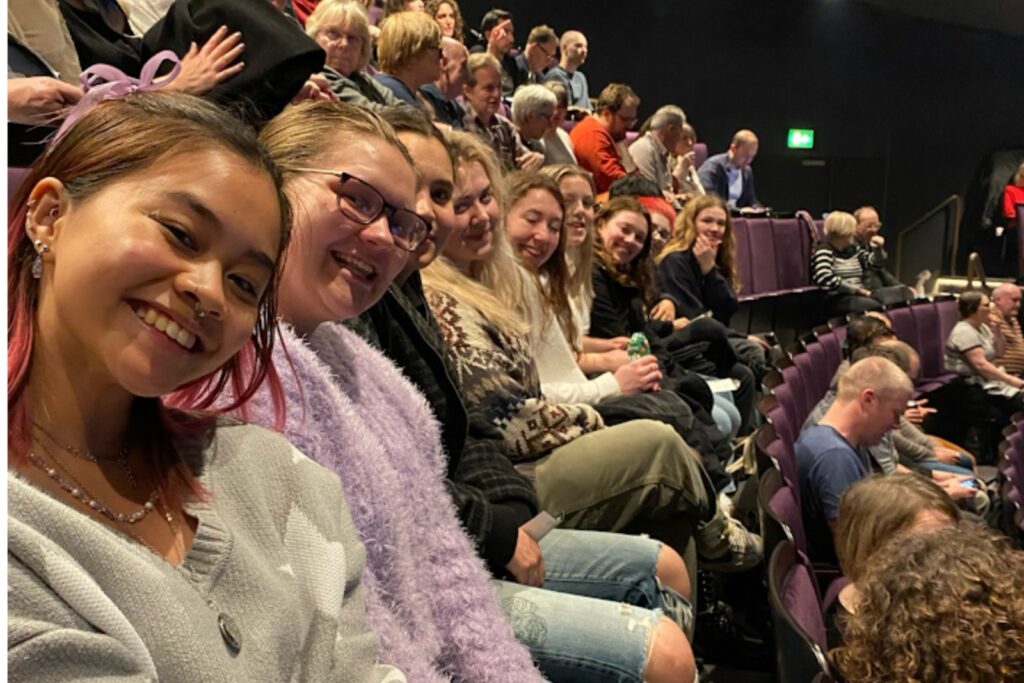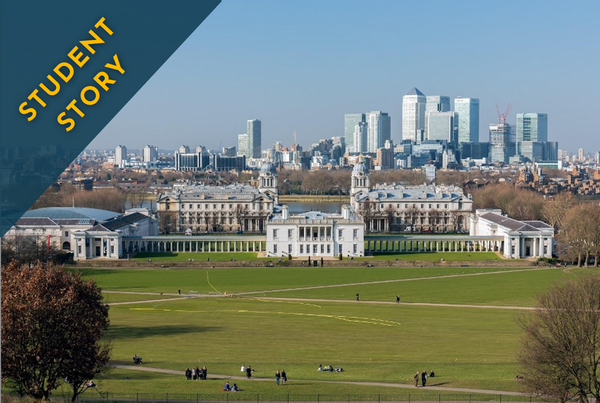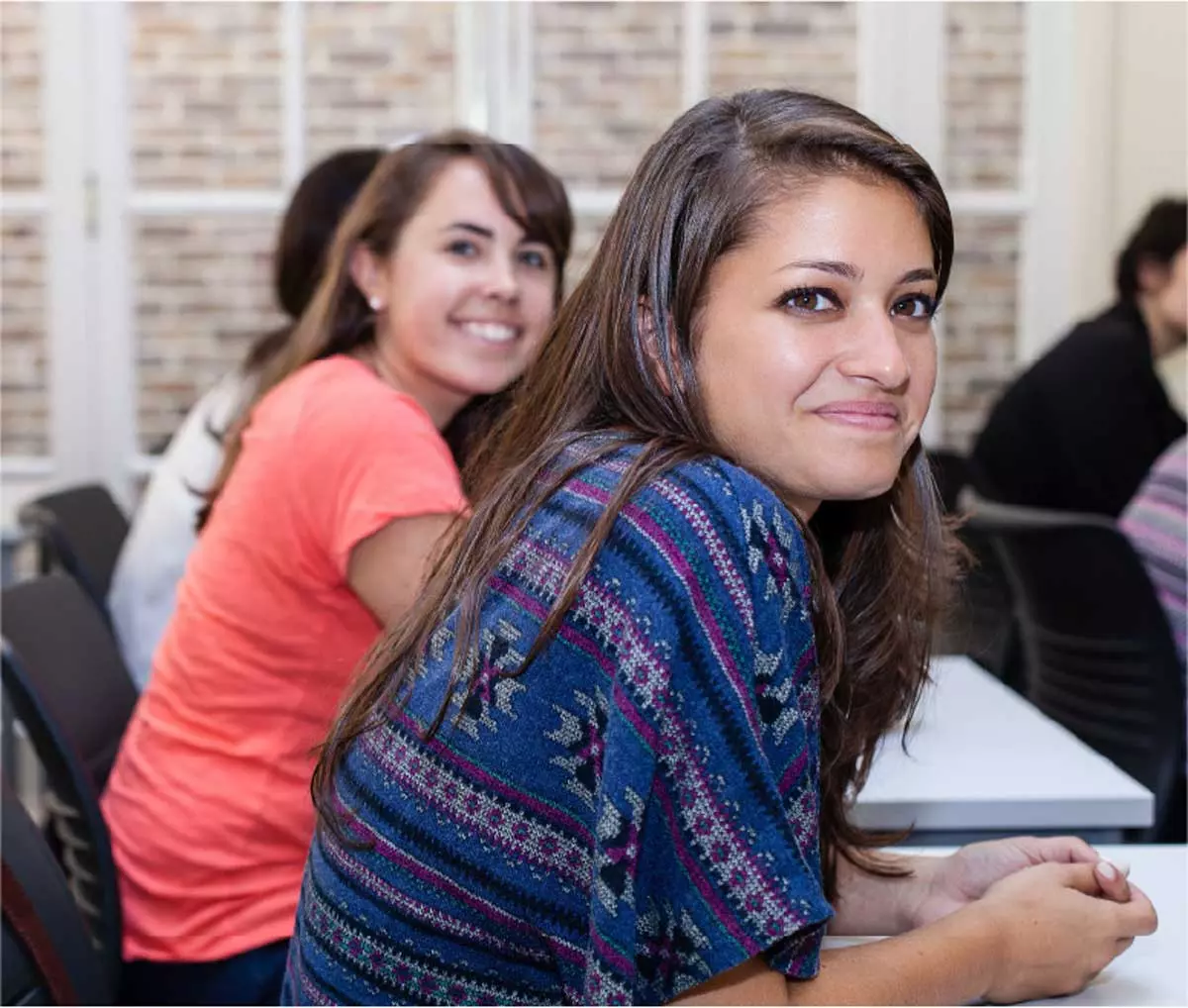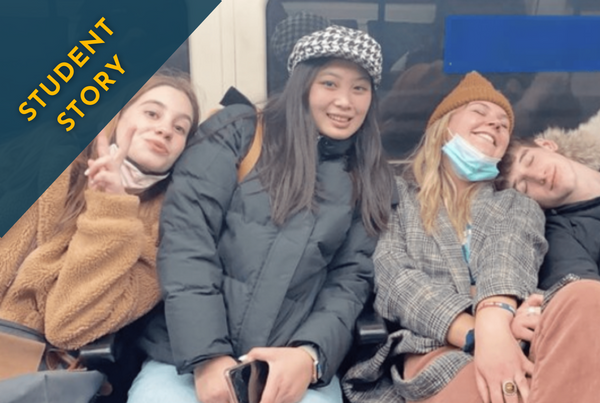
STUDY ABROAD IN
LONDON,
ENGLAND
CONNECT TO THE WORLD in London, England
Study abroad in London and experience the buzz of one of the world’s most iconic cities. From its diverse neighborhoods and cutting-edge arts scene to historic landmarks, world-class cuisine, and endless cultural experiences — you’ll find it all.
Dates & Deadlines
- Fall ’26: Aug. 24 – Dec. 5 (Enroll by 6/22/26)
- Spring ’27: Late Jan. – early May
Requirements
- Must be 17 by the program start date
- Valid Passport
What’s Included?
- Accommodations
- Program Events & Excursions
- Prepaid Meal Cards Available at an Additional Cost
Program Cost
- Fall ’26+: $33,500* before study abroad scholarships or grants
*A $2,500 administrative fee applies for non-U.S. citizens/non-U.S. permanent residents.
College Credits
- 12-17 Credits from our Academic Provider, the University of New Haven
Accommodations
- Student Residence
WHAT WILL MY LIFE LOOK LIKE in London
Experience the excitement of London, where every day brings new adventures. Start your mornings with a stroll through historic streets, then dive into the vibrant culture of the city. Enjoy world-class museums and iconic landmarks like Big Ben and the Tower of London, and explore a multitude of neighborhoods, each with its own charm. In your free time, savor the global food scene, relax in picturesque parks, and take part in lively arts and music events.
Getting around London: London’s extensive bus and tube system makes commuting easy, allowing you to explore every corner of the city. The city’s electric atmosphere and endless opportunities make it the perfect place for an unforgettable study abroad experience.
Excursions & Activities
Possible England Study Abroad Excursions:
Day Trips: Explore iconic locations like Brighton, Cambridge, Oxford, or Margate.
Overnight Trips: Enjoy an overnight adventure to Edinburgh or Dublin.
Cultural Experiences: Visit renowned museums like the British Museum and Victoria & Albert Museum, or explore landmarks like the Tower of London and Buckingham Palace. Sample the range of world foods at markets, food trucks, or local restaurants.
Additional Activities: Participate in theater trips, see a musical and a rugby or football match, and attend workshops covering various topics.
Excursions are subject to change based on availability each semester, ensuring a dynamic and enriching experience.
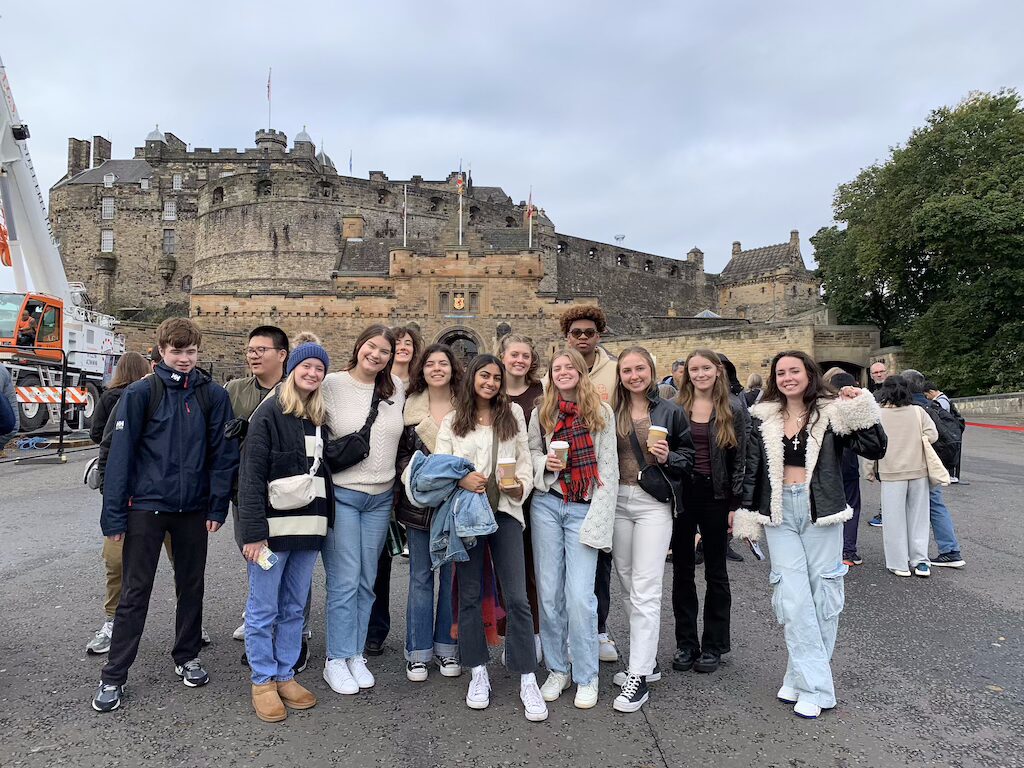
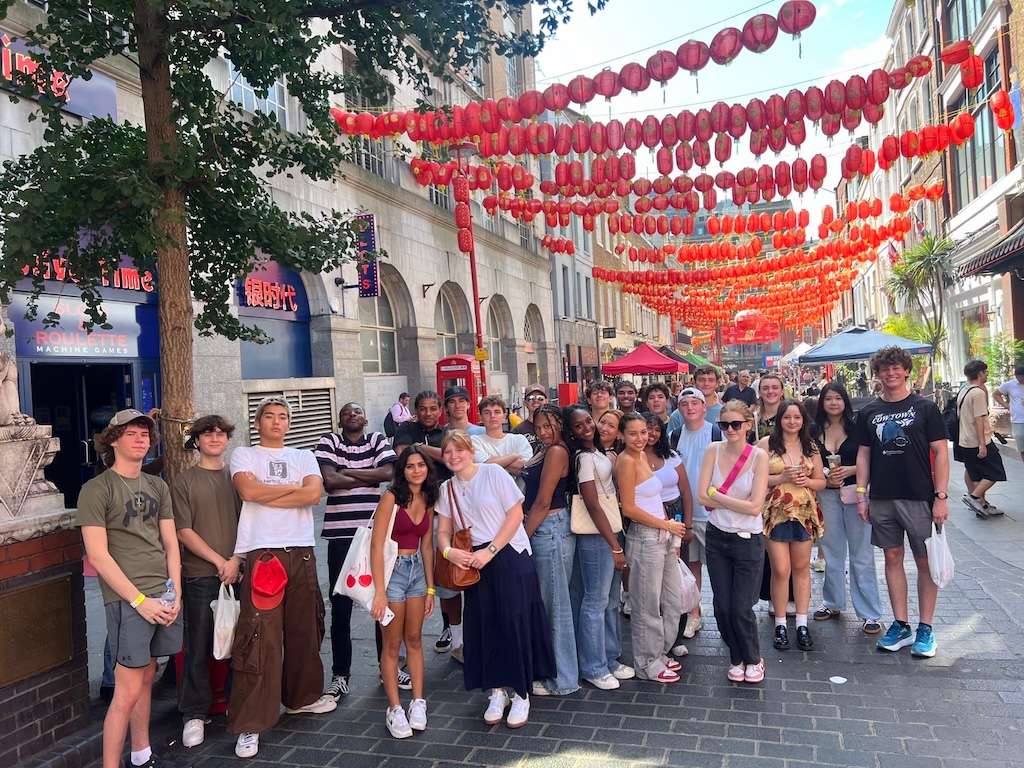
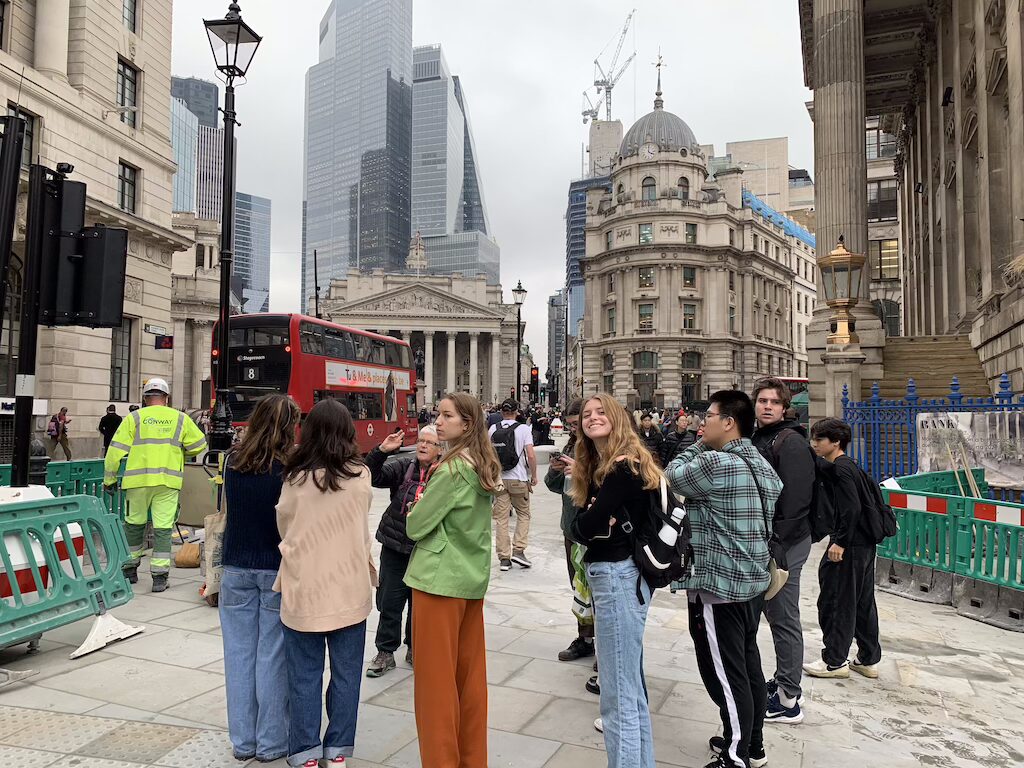
Accommodations
& Meals
Your Home in London
Vertoans will enjoy living in student residences located in the heart of London.
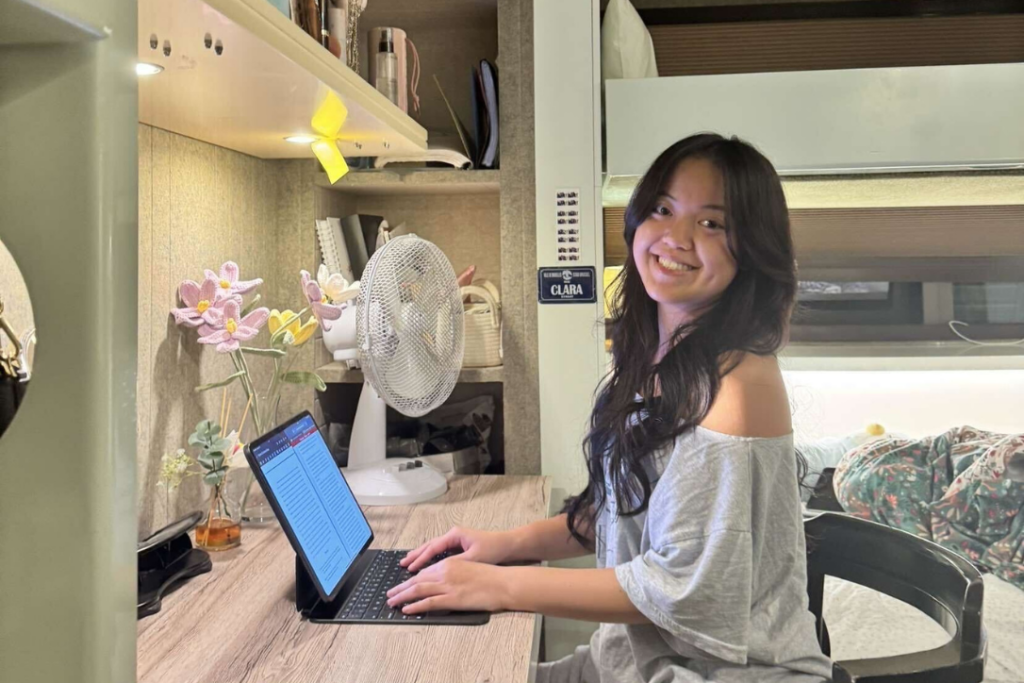
Verto London Study Center
You’ll find our London study center across from Bloomsbury Square, just a 30-40 minute commute from the student residences and walking distance to major attractions like the British Museum, Covent Garden, and bustling local markets. The central location means you’re always close to the action, whether it’s a cultural festival, a historic site, a fantastic free museum, or a trendy café.
ACADEMICS in London
Throughout your London study abroad journey, you’ll earn transferable college credits from Verto’s Academic Provider, the University of New Haven.
Verto’s Unique Academic Experience:
Small Class Sizes with Caring Professors: Enjoy personalized attention and engaging learning environments with an average classroom size of 16.
Excursions and Hands-On Learning Opportunities: Step outside of the classroom as you experience the culture and history of Seville through immersive activities.
Academic Support & Advising: Receive customized support to strengthen your academic skills, access resources like study groups and tutoring, and get 1:1 guidance on your journey to achieving your goals.
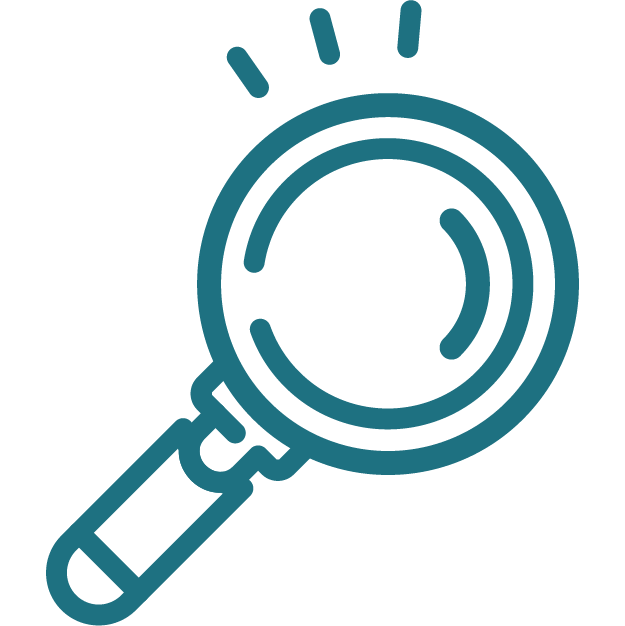
London Academic Spotlight: Science + British Culture & Comparative Politics
Theater, Modern British, Writers, Conflict Resolution, Ethics, Comparative Politics, International Relations, Biology, Chemistry, Physics, Math
LONDON Course Spotlight
*All classes at Verto locations are delivered by our accredited Academic Provider, the University of New Haven.
Course Information
Biology I: Molecular Basis of Life w/ Lab
Part of a year-long foundation course for science majors. The course explores the principles of biological organization with an emphasis on cell structure and function. Topics covered include molecular cellular organization and function, gene expression, cellular division, genetic inheritance, and processes involved in the synthesis and metabolism of carbohydrates.
Calculus I
The first year college course for majors in mathematics, science and engineering; and the basic prerequisite for all advanced mathematics. Introduces differential and integral calculus for functions of one variable, including algebraic and transcendental functions and culminates in the fundamental theorem of calculus. Includes basic rules and properties of limits and derivatives and applications of derivatives. Studies the plane analytic geometry needed for calculus.
Calculus II
Continuation of first year calculus, including the fundamental theorem of calculus, methods of integration, applications of the integral, improper integrals, infinite series, and introduction to differential equations.
College Algebra
A review of the fundamental operations and an extensive study of functions, exponents, radicals, linear and quadratic equations. Additional topics include ratio, proportion, variation, progression and the binomial theorem. This course is intended primarily for students whose program of study requires calculus or business math.
Conflict Resolution
Students in this course will examine the root causes, patterns, and outcomes of political conflict, approaches to conflict resolution, the role of international organizations and major powers in conflict resolution, enforcement and prevention methods, as well as negotiation and peace building techniques. The following questions will be addressed: Why can some conflicts be managed in a peaceful way, while others end in violence? What are origins, stages, and causes of conflict? What role does the cultural context, the state, the military, the economy, the gender order and ethnicity and nationalism play in conflicts? How can we bring adversaries to the negotiating table? What mediation tactics are used in resolving a conflict? And how in the aftermath of a conflict, can peace be made sustainable?
Contemporary Social Problems
The major problems which confront the present social order, and the methods now in practice or being considered for dealing with these problems.
Cultural Understanding of Food and Cuisine
The importance of food and cuisine within the context of society. This course will explore the impact of food on the evolution of mankind and address issues relating to the importance of food in the political and economic structure of the world. Questions regarding food supplies and sources as well as ethical questions facing mankind in the near future will be examined. Also explored will be the influences and perceptions of food in different cultures of the world and how those perceptions affect intercultural understanding.
Elementary Statistics
Topics include: basic probability theory; random variables and their distributions; estimation and hypothesis testing; regression; and correlation. This course is not calculus-based, and places an emphasis on an applied approach to statistical theory with applications chosen from the biological sciences and other fields of study. Students will be introduced to and make use of a computer package for data analysis.
Ethics
How shall one live? Critical examination of answers proposed by classic and modern philosophers of the major world traditions.
Foundations for Success
Foundations for Success is a unique one-credit course designed with the purpose of guiding students through the transition between high-school and college life. With a focus on developing essential skills that are integral for success both in and beyond the classroom, this course will equip first-year students with the tools necessary to thrive academically, socially, and personally. Our holistic approach recognizes the importance of intellectual, emotional, social, ethical, and physical development, making this course a powerful tool for growth and self-awareness. Through interactive coursework, students will learn how to cultivate lifelong learning skills, foster community, build resilience, and achieve personal success at every level.
General Chemistry I w/ Lab
This course discusses atomic and molecular structure, chemical bonding, stoichiometry, states of matter, and thermo-chemistry. This course includes a lab that introduces basic laboratory techniques and emphasizes data collection and analysis.
General Physics I w/ Lab
Primarily for life science majors with no calculus background. Basic concepts of classical physics: fundamental laws of mechanics, heat, electromagnetism, optics, and conservation principles. Introduction to modern physics: relativity and quantum theory; atomic, nuclear, and solid-state physics. Application of the physical principles to life sciences.
History of Art II
This course introduces students to works of art from the Renaissance period to the mid-20th century. The course explores the expressive, social, cultural, political, economic, and technological aspects of societies as reflected in their art.
International Relations
Forces and structures operating in the modern nation-state system, the foreign policy process, decision-making process, the impact of decolonization on traditional interstate behavior, economic and political developments since World War II.
Introduction to Comparative Politics
This course examines comparative politics as a subfield of political science that compares pursuit of power across countries. Its main focus is on a comparative research method as a way to collect and evaluate data, compare cases, test our assumptions, draw conclusions, and make predictions/recommendations. The course aims to answer the following fundamental questions of comparative politics: Why are national governments organized differently? What basic characteristics lead us to group countries together? What are political institutions and why are some institutions more likely than others to produce political stability and accountability? How do we measure the effectiveness of institutions? How do we differentiate opinion from empirical research? Some key concepts of comparative politics will recur throughout the course: nation states, political institutions, regimes, power, sovereignty, legitimacy, citizenship, patriotism, nationalism, ethnicity, human rights, political culture, geopolitics, political violence, globalization, and others.
Introduction to Financial Accounting
Deals primarily with reporting the financial results of operations and financial position to investors, managers, and other interested parties. Emphasizes the role of accounting information in decision making.
Introduction to Microeconomics
Microeconomics including markets and market structure and the allocation of resources. The distribution of income, the public economy, the international economy, and selected economic problems.
Introduction to Psychology
This course will provide students with a basic understanding of psychology as a science. It will introduce students to research methods, principles of learning, development, biological bases of behavior, psychological disorders, and social psychological phenomena. Additional topics may include cognition, sensation and perception, sleep, intelligence, and personality. Ethical issues within the field will also be examined.
Introduction to the Theater
Play analysis from a literary standpoint and as it relates to special problems of the actor, director, designers, and backstage personnel. Practical work in all phases within the classroom.
Mechanics, Heat, and Waves w/ Lab
A first semester, calculus-based physics course for physical science and engineering majors. Fundamentals of mechanics and thermal physics. Vectors, kinematics, Newton’s laws, conservation principles for energy, momentum, and angular momentum, linear, rotational, and harmonic motion, superposition principle, gravitation, fluids, mechanical waves, sound, heat, ideal gases, laws of thermodynamics.
Modern British Writers
A study of important British writers from the Romantic era to the present.
Modern Societies and Civilizations
In this course students will explore selected societies and civilizations from the sixteenth through twentieth centuries. This will include major cultural trends, interactions between society and economy, and analysis of cooperation and competition within and between various communities.Students will develop an understanding and appreciation of various cultures that shaped modern societies as parts of our shared human story. Examination of what it has meant to be human in diverse circumstances will provide students with powerful tools for better engaging their world today, and planning for our future. Amongst an array of methods for historical analysis, students will receive training in various methods of computer-based data analysis, visualizations, and professional presentation - transferrable to any profession.
Philosophy of Religion
An examination of some philosophical notions used in religious discourse, such as meaning, truth, faith, being, God, the holy.
Pre-Calculus
Topics include: polynomials; algebraic functions; plane analytic trigonometry; and properties of exponential, logarithmic, and trigonometric functions. This course offers the foundation needed for the study of calculus.
Principles of Communication
This course will cover competencies and skills necessary to effectively communicate in various settings. Specifically, the present course will address the role of verbal communication, nonverbal communication, identity, culture, and listening in multiple communicative contexts. Students will have the chance to structure, organize, develop, and present information in multiple settings. These communicative contexts include interviews, group discussions, conflict situations, and social media.
Public Speaking and Group Discussion
Development of proficiency in organizing and presenting material in speaking, group interaction, conference management, and small-group discussion.
Quantitative Reasoning
Topics include: sets; basic logic; enumeration and elementary probability; mathematical applications of personal finance; and basic statistics.
Seminar in Academic Inquiry and Writing
This course introduces students to the conventions of academic writing and the habits of critical inquiry they will need in university courses and beyond. Students read and annotate texts on a topic (or topics) selected by the instructor, develop original avenues of inquiry through classroom discussion, and transform their questions into well-supported academic arguments. Assignment sequences incorporate opportunities for research, drafting, revision, editing, and reflection to help students find writing processes that can be replicated in future courses and workplace projects that require only polished work. Because different disciplines and career paths present different scenarios for critical thinking and writing, this course also teaches students how to adapt the conventions of academic inquiry to a variety of contexts.
Sociology
The role of culture in society, the person and personality; groups and group behavior; institutions; social interaction and social change.
Biology II: Organisms and Evolution w/ Lab
Part of a year-long foundation course for science majors. The course explores evolutionary theory as it applies to the diversity of life with special emphasis on animal anatomy and physiology, as well as basic ecological principles at the population, community, and ecosystem levels.
Calculus II
Continuation of first year calculus, including the fundamental theorem of calculus, methods of integration, applications of the integral, improper integrals, infinite series, and introduction to differential equations.
Contemporary Social Problems
The major problems which confront the present social order, and the methods now in practice or being considered for dealing with these problems.
Early Societies and Civilizations
In this course students will explore selected societies and civilizations from the earliest recorded histories down to the sixteenth century. This will include major cultural trends, interactions between society and economy, and analysis of cooperation and competition within and between various communities. Students will develop an understanding and appreciation of various cultures that shaped past societies as parts of our shared human story. Examination of what it has meant to be human in diverse circumstances will provide students with powerful tools for better engaging their world today, and planning for our future. Amongst an array of methods for historical analysis, students will receive training in various methods of computer-based data analysis, visualizations, and professional presentation - transferrable to any profession.
General Chemistry I w/ Lab
This course discusses atomic and molecular structure, chemical bonding, stoichiometry, states of matter, and thermo-chemistry. This course includes a lab that introduces basic laboratory techniques and emphasizes data collection and analysis.
General Chemistry II w/ Lab
The second half of a one-year course sequence in General Chemistry intended for science and engineering students and comprised of a brief overview of chemistry fundamentals including intermolecular forces, physical properties of liquids and solids, colligative properties of solutions, chemical kinetics, chemical equilibrium, solubility equilibrium, acid-base equilibrium/buffers, thermodynamics and electrochemistry.
History of Art I
This course introduces students to works of art from the Paleolithic to the Renaissance period. The course explores the expressive, social, cultural, political, economic, and technological aspects of societies as reflected in their art.
Introduction to Comparative Politics
This course examines comparative politics as a subfield of political science that compares pursuit of power across countries. Its main focus is on a comparative research method as a way to collect and evaluate data, compare cases, test our assumptions, draw conclusions, and make predictions/recommendations. The course aims to answer the following fundamental questions of comparative politics: Why are national governments organized differently? What basic characteristics lead us to group countries together? What are political institutions and why are some institutions more likely than others to produce political stability and accountability? How do we measure the effectiveness of institutions? How do we differentiate opinion from empirical research? Some key concepts of comparative politics will recur throughout the course: nation states, political institutions, regimes, power, sovereignty, legitimacy, citizenship, patriotism, nationalism, ethnicity, human rights, political culture, geopolitics, political violence, globalization, and others.
Introduction to the Theater
Play analysis from a literary standpoint and as it relates to special problems of the actor, director, designers, and backstage personnel. Practical work in all phases within the classroom.
Public Speaking and Group Discussion
Development of proficiency in organizing and presenting material in speaking, group interaction, conference management, and small-group discussion.
Seminar in Academic Inquiry and Writing
This course introduces students to the conventions of academic writing and the habits of critical inquiry they will need in university courses and beyond. Students read and annotate texts on a topic (or topics) selected by the instructor, develop original avenues of inquiry through classroom discussion, and transform their questions into well-supported academic arguments. Assignment sequences incorporate opportunities for research, drafting, revision, editing, and reflection to help students find writing processes that can be replicated in future courses and workplace projects that require only polished work. Because different disciplines and career paths present different scenarios for critical thinking and writing, this course also teaches students how to adapt the conventions of academic inquiry to a variety of contexts.
INCLUDED WITH Your Experience
We recommend budgeting $800-1,200 USD per month for personal expenses. Your budget will mostly depend on your spending habits, especially for independent travel.
Talk to your family about budgeting expectations before you arrive. You don’t want to blow your whole budget on fish and chips! (Or do you…?!)
Included With Your Study Abroad Program
- All accommodation while overseas
- All scheduled activities, excursions, and events
- Books and other course materials
- Travel medical insurance
- Airport pickup on the designated arrival date
- Oyster card for transportation within zones 1-3 in the city, depending on where your residence is located
- 24/7 Emergency assistance
International airfare, change fees, visa, and passport fees not included. Meal plans are available for an additional $2,675.
Check out these Vertoan’s tips on keeping to your budget while abroad!
On-Site Support
We’ll walk alongside you every step of your study abroad journey. From pre-departure guidance and virtual workshops to on-site mentorship, academic support, and community-building activities, we ensure you have the support you need for an enriching experience abroad. Plus, our team is here to help with your college planning and life after Verto, providing personalized advice and transfer support to set you up for future success. Learn more about student support here!
Scholarships & Institutional Aid
Verto is committed to increasing equity, access, inclusion, and diversity in study abroad and higher education — regardless of your financial background.
About half of Verto participants receive study abroad scholarships, institutional aid, or both. For eligible participants, Verto can significantly reduce the study abroad cost through Verto’s Global Citizen Scholarship. You can also apply for external grants and scholarships to further reduce your study abroad cost.
How to Apply to Verto London
The first step is to fill out our free study abroad application. There’s no obligation and it only takes a few minutes to complete the online form.
After your application is submitted, you’ll be matched with a counselor who can answer any and all of your questions. Ready to get started?
